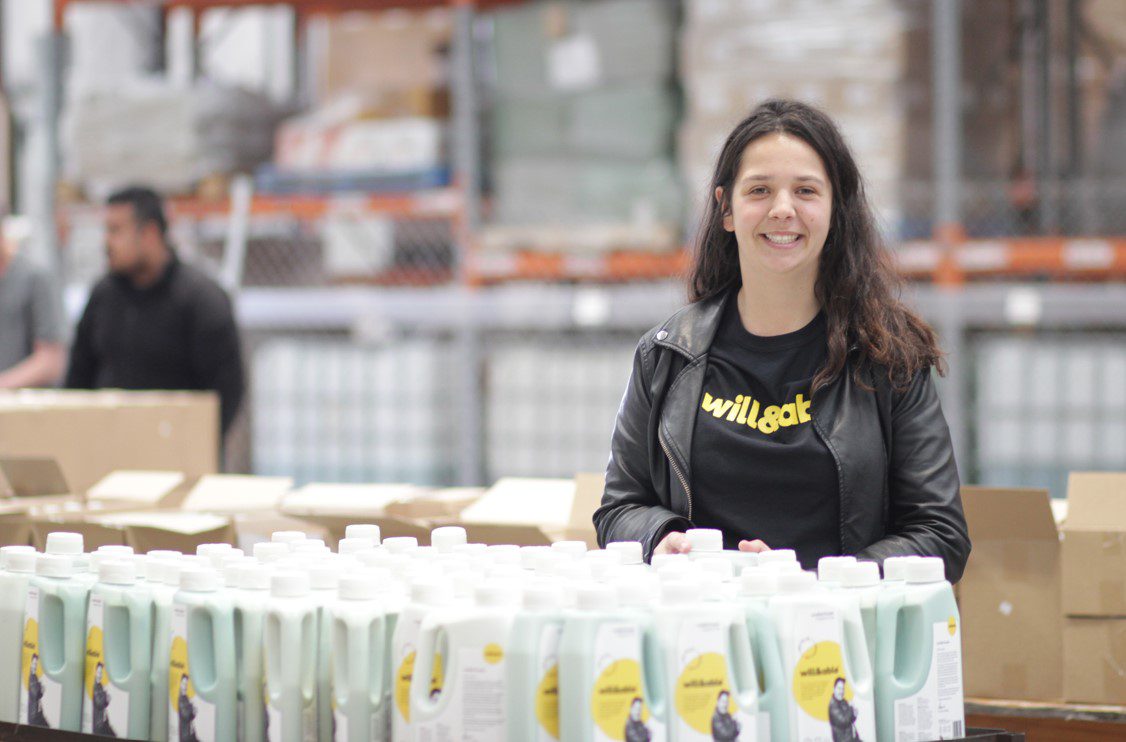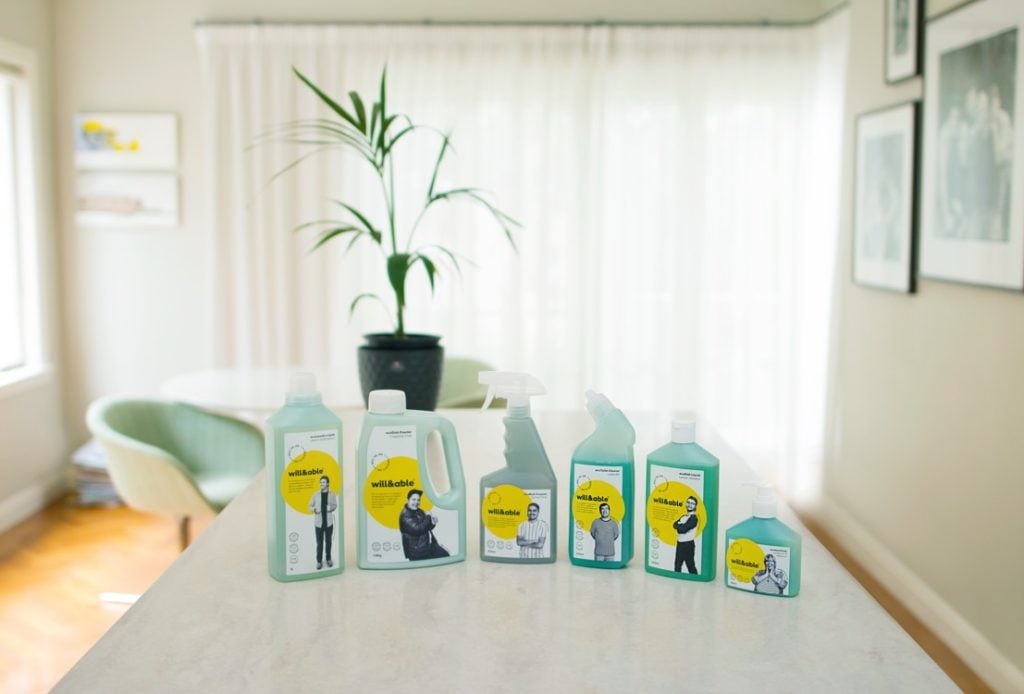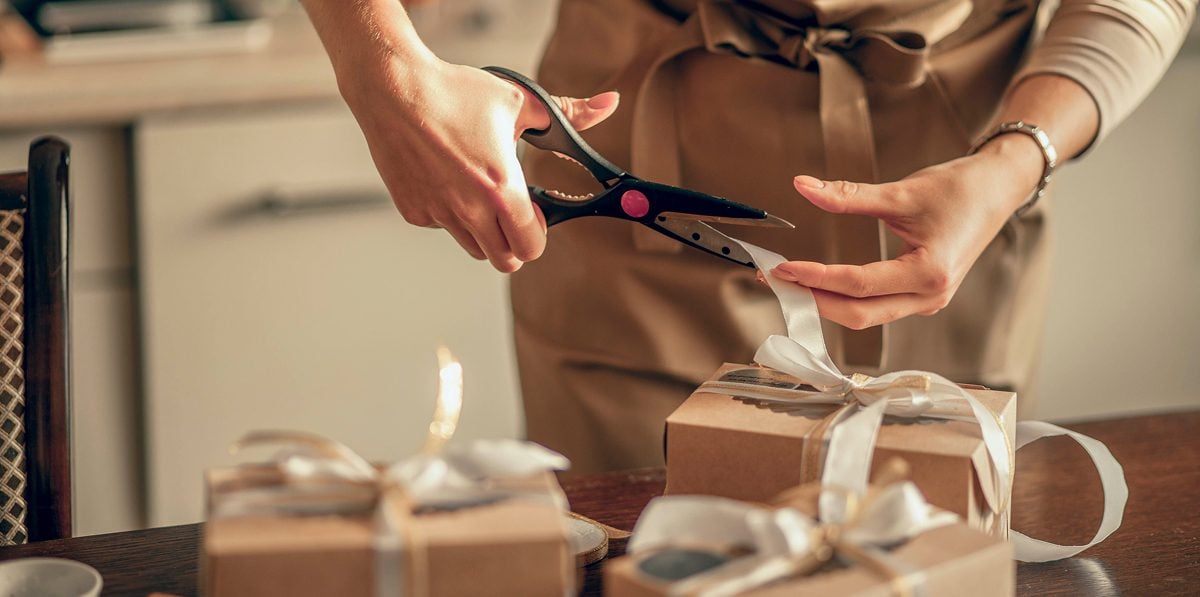Balancing commercial principles with a social purpose is helping Will&Able achieve its mission of creating jobs for Kiwis with intellectual disabilities and mental health issues.
At a glance
Here’s a snapshot of the advice from our interviewees:
- Consider applying commercial business principles to your social enterprise so you can plan to scale effectively.
- Make sure your branding conveys your purpose so people understand why they should choose your product over the competition.
- Stick to your vision – especially when things get challenging and you’re feeling discouraged. Remember why you started the organisation in the first place.
A vision for a new kind of social enterprise
When Martin Wylie and Craig Burston started Will&Able, they planned to shake up the traditional model of a social enterprise.
“There’s a lot of regulation and control around the employment of people with disabilities in New Zealand,” says Martin, who’s now Director of Will&Able. “We wanted to see if we could reinvent the model by creating jobs for people with intellectual disabilities or mental health issues that pay market rates instead of relying on the usual exemption from paying minimum wage.”
His co-founder Craig, now General Manager, shares the big goal they started with: creating 100 new jobs for Kiwis with disabilities.
“The idea was to make a social enterprise that operated like a commercial business – one we could grow and eventually scale,” says Craig, General Manager. “A hundred jobs is a big number of jobs for any organisation, especially in New Zealand. It’s a goal that shows we are really serious about our mission.”
Both fathers of sons with disabilities, Martin and Craig know all too well how important it is for everyone to have access to meaningful work in an environment that supports them.
“People with disabilities are three to four times more likely to be unemployed. Our vision is to see every New Zealander with a disability in a job if they want one,” explains Craig. “It’s about supporting people to have fulfilling lives and reach their full potential, to give them choices, and to help reduce anxiety and increase confidence.”
A simple product with a big message
The first step was to settle on a product that people with intellectual disabilities or mental health issues could help put together and that would be appealing to consumers.
“It had to be a product that people would be relatively indifferent to in a brand sense,” explains Martin. “Not like your favourite brand of coffee or wine. People aren’t so wed to a brand of cleaning products so it would be about giving people a compelling reason to buy ours.”
The first iteration of their cleaning product range launched in 2019. It was not, says Craig, a success. The product, which wasn’t eco-friendly, just didn’t take off.
They relaunched with a dual focus: the environment and disability employment. It worked.
“People who care about the planet tend to care about people,” explains Craig.
The new product packaging was made from recycled milk bottles and featured the message that buying this product would help someone with a disability have a job and be paid market rates.
“A pretty good reason to switch from some industrial conglomerate to the Will&Able brand!” says Martin, explaining that competing on purpose and values was essential. “If we had to compete fiercely on price, we couldn’t do it. It’s about bringing other value propositions to the product.”
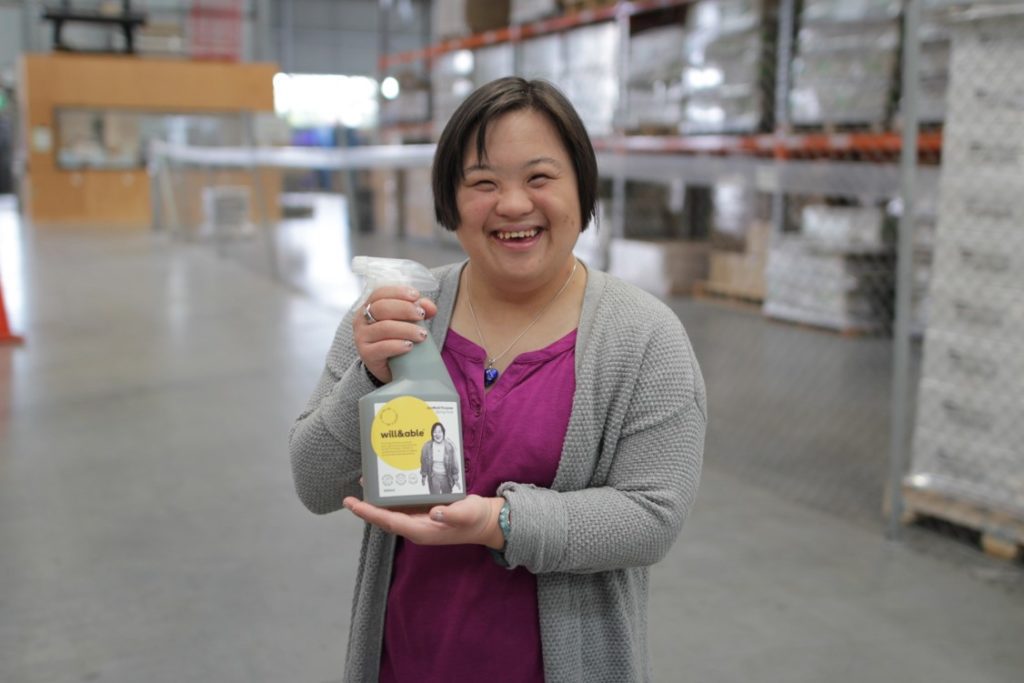
Some good luck and a lesson learned
The team did face some difficulties promoting the products to large local businesses, selling online and getting the product on the shelves of the major supermarkets – but none so big as to make Will&Able lose sight of the vision.
“If we got 10 online orders in a day, we’d be cheering,” Craig remembers the early days of selling the product online.
In 2020, a news story on Seven Sharp featuring Will&Able brought an unexpected boost to sales.
“We got 20,000 orders overnight which meant we ended up being able to invest in a filling machine so we wouldn’t have to outsource the filling process going forward.”
The positive publicity also helped put them in good standing with the supermarkets – the products are currently making their mark on shelves at Foodstuffs and Countdown.
Fuelled by the momentum created by the news spot, they decided to take a crack at television advertising with funding from Aon. Unfortunately, it was not the hit they’d hoped for.
“One $50k campaign won’t do it,” says Craig. “You have to be spending that much every month.”
It was a hard lesson but one that ultimately cemented a partnership with Aon, which is now providing recycling stations at its 70 branches so consumers can drop off empty containers for collection, cleaning and reuse by Will&Able.
“Social enterprise partnerships with private sector organisations are so important,” says Craig.
Switching strategies
With the television advertising experience behind them, Craig and Martin had to rethink how they’d build brand awareness, and settled on a more targeted approach than mass advertising, reaching the consumers who were ready to get on board with their purpose already.
“Our strategy became focused on community engagement,” says Craig. “So that when people went into the supermarket, they’d see the distinctive yellow dot of Will&Able and understand what buying our product means.”
The team is preparing to take a fleet of branded vans to farmers’ markets, schools and local events.
“We’ll go to the opening of a peanut butter sandwich if it means spreading the word!” says Craig. “It’s not primarily about selling directly, but rather helping people get familiar with our brand and introducing the community to some of the people who work for Will&Able so they can see for themselves just how valuable those jobs are.”
The word is spreading to government as well – Auckland City Council, Auckland Transport and Auckland Limited all use Will&Able products.
Focusing on what matters
Will&Able currently has nine employees and has its focus set firmly on employing 100 people as per its original mission.
“The measure of success for us has never been profit,” says Craig. “Success is measured by how many people with disabilities are working and finding value in their work. And we see it every day at Will&Able along the table where everyone chats and laughs together as they label and pack the products.”
“There’s nothing more essential than employment for the people who are working for us,” says Martin. “Something to get up for each day, somewhere you are wanted and supported and with other people who understand you, doing something of value that you get paid a proper wage for.
“There’s a huge number of people to whom this model could make a profound difference and, ambitious as it sounds, we believe it has international application in principle.”
When that time comes, Martin and Craig will be ready to share their experience and insights.
“Whatever ‘secret sauce’ we have, we want others to have it if it means getting socially and economically isolated people into employment.”
And in the meantime, what can people do to help make a difference?
“Buy some bloody toilet cleaner!” says Martin. “You have to buy it anyway, so why not choose the one that means someone gets a job who wouldn’t otherwise have one.”
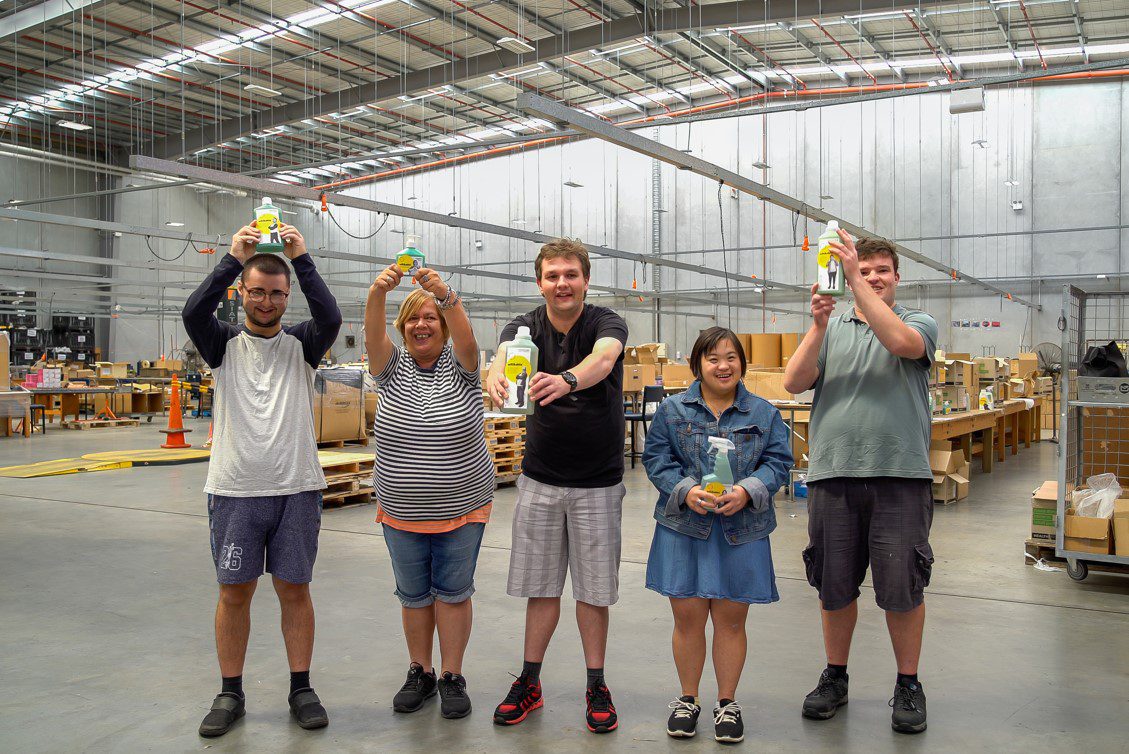
Believe you can make change? We believe it too. Find out more about how a Prospa Small Business Loan could help.
